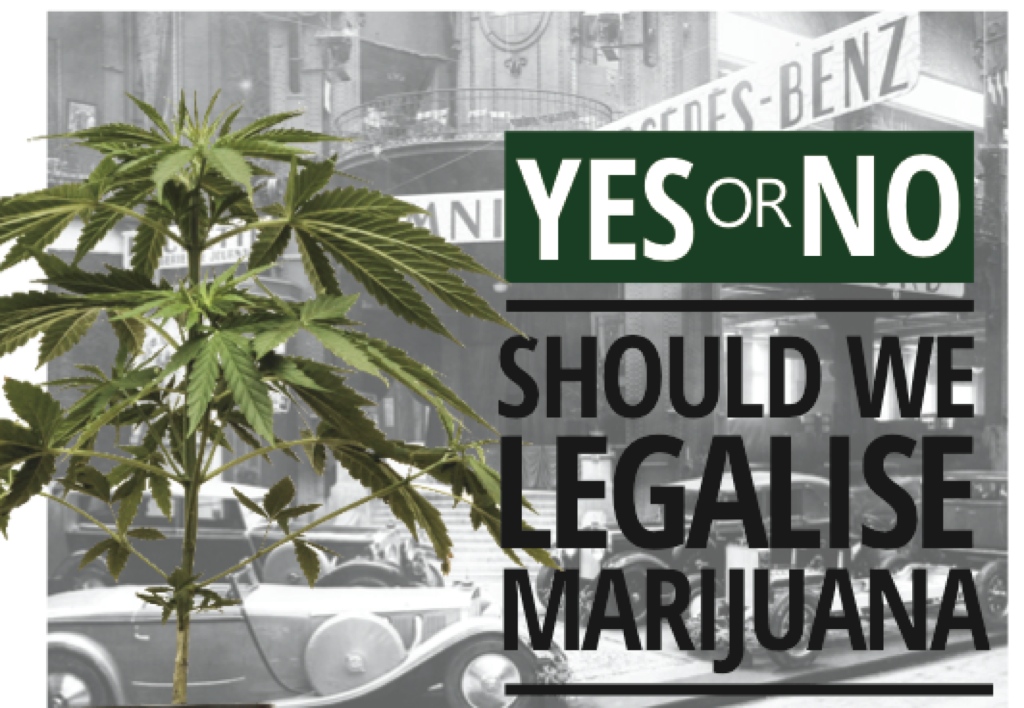Excessive use of alcohol, tobacco and marijuana can be devastatingly harmful—physically, socially, spiritually. If any easy, painless way could be found to banish them from the face of the earth, mankind would be the better for it. Unfortunately, we don’t know how. And all past efforts to deal with the problem—from the most severe to the most liberal—have been unsuccessful.
Forty million American tobacco smokers knowingly shorten their lives by ruining their lungs and their hearts. Binge drinking on college campuses (and the rapes it often encourages) is universally deplored; and U.S. narcotics consumption (despite a prison incarceration rate seven times higher per capita than in any European country) is the world’s highest.
The well-intentioned legislators who brought alcohol’s Prohibition to America in 1919 never anticipated the surge of Mafia-controlled violence, corruption and disrespect for law that would soon engulf the country. By 1933, widespread disgust with the degradation of public life resulted in Prohibition’s repeal, and the public cheered.
America’s energetic forty-year War on Drugs (which saw the U.S. prison population grow by 700 percent from 1973 to 2000, with no decline in drug use) is seen by our public as a dramatic fiasco, costing us $65 billion a year and ruining minority lives in the inner city. It’s worst manifestation—N.Y.’s Rockefeller Drug Laws, with severe mandatory minimum prison sentences and “crack” penalized worse than cocaine, has resulted in one of three black males born today likely to go to prison (and thereby losing access to voting rights, employment, admission to public housing, even to military service).
Clearly fresh thinking and effective political activism from an aroused public are called for, in dealing with the major civil rights issue, a major health issue, and one of the major economic issues of our times.
An ideal solution is not in sight. It would entail government involvement or regulation of the production, distribution and use of narcotics; the removal of the private profit motive to the extent possible; an increase in tax revenues from drug sales, with proceeds applied to education, prevention, treatment and rehabilitation; and—most importantly—a reorientation of our criminal justice system toward prevention of crime and rehabilitation of criminals from its present obsession with punishment and retribution. Non-violent first offenders would not be imprisoned with hardened criminals but would be taught to read, write and count and would be exposed to vocational training that would permit them to earn a living rather than turn to a life of crime.
In the meantime, while waiting for Utopia, the U.S. can learn from the best current international practices which focus on public safety.
First of all, a distinction is drawn between “hard drugs”—heroin and cocaine—and “recreational drugs”—tobacco, alcohol and marijuana. The use of the “recreational” is legalized but its distribution is government-supervised, while the “hard” is prohibited and its distribution punished severely. Medical use of all drugs is government supervised.
Secondly, government funding is focused on research, prevention, education and rehabilitation rather than on police and prisons.
Thirdly, the public must be educated—through parents, teachers, schools, news media—to the problems of addiction and its devastating effects. Instead of drug users being seen as “cool” they should be universally ridiculed as self-destructive idiots.
What are the immediate practical lessons for America?
Decriminalizing the possession of small amounts of marijuana and no longer permitting police to use “public view” of marijuana as an excuse to arrest users would reduce prison occupancy, save taxpayers money, weaken organized crime and reduce the size of our prison-deformed underclass.
The arguments against the legalization of marijuana are:
A) Marijuana may be a “gateway” to the use of harder drugs such as heroin or cocaine;
B) Marijuana may be addictive;
C) Marijuana alters perception and may cause auto accidents;
D) Marijuana may cause health problems.
All current statistical studies show that the impact of each of these
problems has been grossly exaggerated by hardline defenders of the
status quo.
What is your opinion? Should the possession of small amounts
of marijuana be legalized and should “public view” no longer be an
excuse for the arrest of huge numbers of inner city youth?

